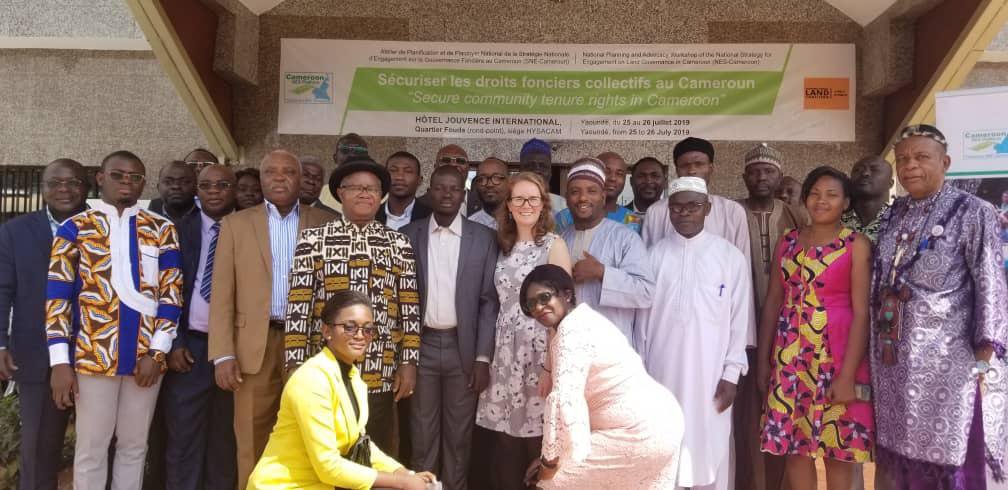Planning and advocacy in Cameroon with the Land Matrix
The African continent is the most targeted region for large-scale land acquisitions (LSLAs) in the global south. Given the sheer scale of this, monitoring these deals can be extremely challenging – but it is crucial that we do so, as access to land is closely linked to a number of social, economic, and environmental issues. Having realised that very few organisations were keeping track of these deals in a systematic way – or were making the data open and easily accessible outside of their organisations if they were – the Land Matrix was established in 2009 to address the dearth of robust data at the time.
One of its key strategies for meeting monitoring challenges is decentralisation, whereby regional and national stakeholders assist with data collection and research, and actively engage in advocacy and networking in their specific areas. Regional Focal Points (RFPs) and National Land Observatories (NLOs) are an important tool for implementing this approach, as they facilitate more inclusive participation of local partners in collecting, managing, and reviewing land data, as well as providing an opportunity for information-sharing and dialogue within existing multi-stakeholder platforms.
Cameroon is home to one of the five Land Matrix NLOs, which was officially launched in January 2019, although it has been operational since December 2017. The Cameroon NLO falls within the International Land Coalition (ILC) National Engagement Strategy (NES) platform, and is currently hosted by the Centre for Environment and Development (CED). The NLO covers all domestic and transnational deals after the year 2000, including agriculture, forestry, mining, ranching, and livestock, among others. Importantly, all deals from 50 hectares (ha) are included, rather than the global Land Matrix standard of 200ha.
In view of the very important work the NLO and its partners are doing in the country, and indeed the region, the Africa RFP was therefore thrilled to be invited to the NES national planning and advocacy workshop in July this year, and saw this as a valuable opportunity to not only engage with the Cameroon NLO team, but also to be part of NLO and NES triennial planning. It equally provided the Africa RFP with a platform to explain the work of the Land Matrix and NLO in more detail, and engage in deeper discussion with the NES members in order to garner their support and inputs for improvements.
In addition to the NES workshop, several other meetings took place during the visit, including with the NLO coordination team to gain an understanding of the main achievements and challenges since the launch of the NLO, and a refresher training and clarification session with the NLO technical team, to better understand the technical challenges they face and assist in addressing them.
Feedback, planning, and networking opportunities like these not only feed into the support package which the Africa RFP continues to provide, but opens the space for further collaboration and growth in the region, and in so doing, contribute to the growing movement towards greater public involvement in critical decisions that affect the lives of land-users.

Africa RFP coordinator, Angela Harding, with the NES members